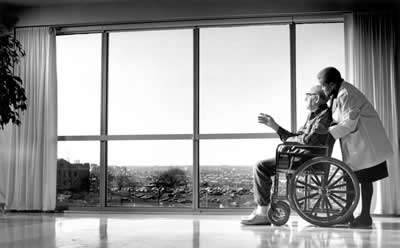KB Times
Katten & Benson, Your Elder Law Specialists
July 2009 - Vol 2, Issue 7
|
|
|
Did You Know?
|
- About 17 million men are caring for an adult
- Men are currently 40% of family caregivers, up from 19% in 1996
The New York Times, November 29, 2008
|
|
Happy 4th!
|

We hope all of you have a safe and happy 4th of July!
|
|
|
Caregiving: It's Not Just For Women
|
 Caregivers for older adults have traditionally been women. We care for our parents, our in-laws, our aunts and uncles, in addition to our children and grandchildren. But with smaller families and more women who work full-time, more and more men are becoming primary caregivers for older adults. While there services and supports in many communities for caregivers, women have traditionally developed and used these services, so men may not always feel welcome or that their unique and specific needs are addressed. Caregivers for older adults have traditionally been women. We care for our parents, our in-laws, our aunts and uncles, in addition to our children and grandchildren. But with smaller families and more women who work full-time, more and more men are becoming primary caregivers for older adults. While there services and supports in many communities for caregivers, women have traditionally developed and used these services, so men may not always feel welcome or that their unique and specific needs are addressed.
Isolation
Many caregivers deal with isolation. If you've had to cut back hours at a job or quit a job completely, isolation can be a real struggle, especially if there is no one else who can provide some respite. Male caregivers find themselves in a predominately female arena, and they can be reluctant to ask for help.
Stereotypes
Men in our society have traditionally been the breadwinners. A man who is a caregiver may sometimes experience biases from unusual sources. One example might be a hospital setting. I remember years ago when I first started working in a hospital a doctor told me that it was "inappropriate" for a husband to have to bathe his wife. And yet this same doctor never had a problem with a wife bathing a husband. As a daughter, I doubt that anyone would question me if my mother was hospitalized and I decided to help bathe her. I wonder if any of my brothers would even be allowed to assist with such a task.
Work
Some men find that their employers are not sympathetic when they have to take time off to care for an older adult parent or other relative. They may fear that a supervisor won't think they are focused on their job if they request flexible hours or take advantage of an employee assistance program.
Women have a longer history of putting careers on hold to care for children, and now for parents. If a man leaves a job for a period of time to care for an elderly parent, he might have a harder time returning to the work force. |
|
|
|
Respite Care
|
 The Merriam-Webster Dictionary defines respite as "an interval of rest or relief". If you are a caregiver,
it's important to give yourself some respite from the day to day tasks
of caregiving. The Merriam-Webster Dictionary defines respite as "an interval of rest or relief". If you are a caregiver,
it's important to give yourself some respite from the day to day tasks
of caregiving.
We've all had friends tell us to let them know if they can help, and if
you are a caregiver, it will be helpful if you can cultivate the skill
of asking for and accepting help. Friends are often well meaning, and truly want to help, but unless they have been in a similar situation, they may not know what kind of help you need. Providing direct care to you loved one might be scary or overwhelming, but if friends are willing to do things like run errands or help with yard work or house work, let them.
Caregiving can put a lot of strain on family relationships. I heard of a situation once where a daughter was the caregiver, and she had a lot of resentment toward a brother, who did not get along with the parent. His relationship with his parent was so bad that he would provide no assistance for the parent's care at all. The daughter was finally able to ask her brother to do things for her, which he was willing to do. This in turn freed her time to care for the parent, which he was not willing to do.
Of course, taking a break, like so many things, is easier to talk about than to actually do. There are some adult day programs available, although most are private pay only situations. Many nursing homes or assisted living facilities will also provide respite care services, but again usually only if you can pay privately.
Some agencies have funding available to assist families with respite care. In Tarrant County you can contact the Aging & Disability Resource Center at 1-888-730-2372. They can assist you with finding resources to help pay for some limited respite care.
If your loved one is on hospice, don't forget that respite care is also a hospice benefit. You are entitled to five days of respite care during each certification period (90 or 60 days). Ask your hospice nurse or social worker for details about the hospice respite benefit.
|
 |
|
|
Please feel free to share this newsletter with your friends, colleagues and clients (we never share our email list). We look forward to helping you and your clients with your long term care planning needs.
Sincerely,
|
|
Kim Olmedo, LCSW, CCSM, CSW-G
Elder Care Coordinator
Katten & Benson
|
|
|
|
|